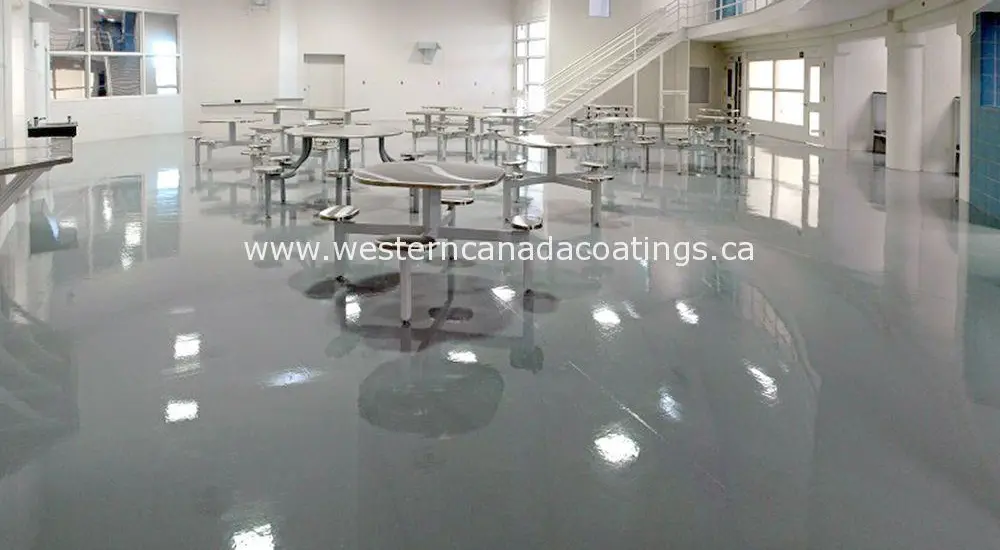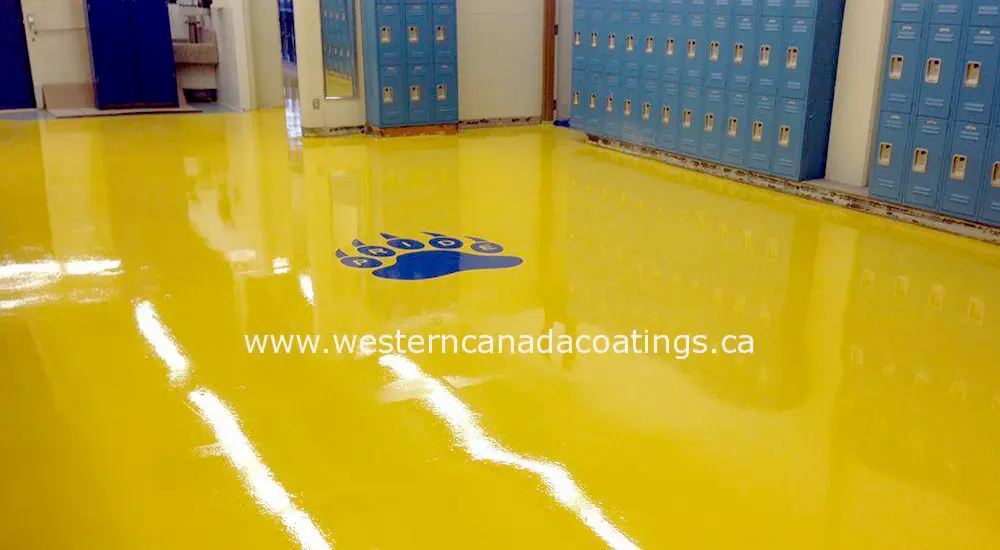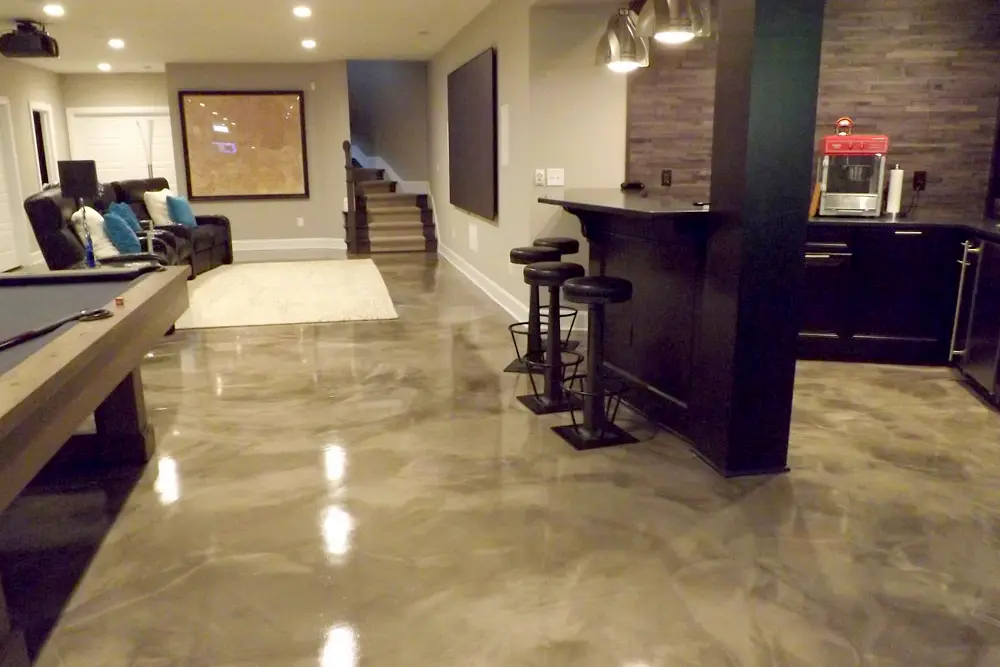Epoxy resin thermoset plastics made by the reaction of two or more industrial chemical compounds. Epoxy resins are used in a wide array of consumer and industrial applications because of their toughness, strong adhesion, chemical resistance, and other specialized properties.
Epoxy resin is known for its strong adhesive qualities, making it a versatile product in many industries. It offers resistance to heat and chemical applications, making it an ideal product for anyone needing a stronghold under pressure. Epoxy resin is also a durable product that can be used with various materials, including wood, fabric, glass, china, or metal. It’s important to note, however; the epoxy resin is not considered to be water-resistant. Repeated moist or wet conditions can cause deterioration over time which will affect durability.
You May Also Like How To Paint Acrylic Over Oil-Based Paint
Epoxy Resin as Adhesives
One of the most common uses of epoxy resin is for adhesive purposes. That’s because the strong properties of epoxy allow for structural and engineering adhesives. Commonly, epoxy resin is used in the construction of vehicles, snowboards, air-crafts, and bicycles. But epoxy adhesives aren’t limited to only structural applications. In fact, they can be used in virtually any application. Generally speaking, epoxy is used due to its diverse options in setting. It can become flexible or rigid, varying in the opaque and transparent options.
What is Epoxy Used for in Building and Construction
Epoxy resins are used in the manufacture of adhesives, plastics, paints, coatings, primers and sealers, flooring, and other products and materials that are used in building and construction applications.
Epoxy Glues and Structural Adhesives
Most adhesives known as “structural “or “engineering” adhesives are epoxies. These high-performance adhesives are used to make laminated woods for decks, walls, roofs, and other building applications, as well as in other products that require strong bonds to a variety of substrates, for example to concrete or wood. Epoxies can stick to wood, metal, glass, stone, and some plastics, and are more heat- and chemical-resistant than most glues.

You May Also Like 3D Epoxy Flooring
Outdoor Coatings and Sealants
Epoxy resins also help to provide durable, high-gloss outdoor coatings, as well as sealers for concrete floors and other heavy-duty protective coatings used in industrial settings.
Epoxy Floor Coatings
Resins are used for high-performance and decorative floorings, such as terrazzo flooring, chip flooring, and colored aggregate flooring. These types of flooring are available in a wide range of colors and decorative patterns that are created by adding contrasting vinyl chips or colored quartz aggregate to the top epoxy layer. Epoxy flooring can also be augmented with paint chips, or other additives like polymer grit, that provide an anti-skid texture to a floor.
Resin Countertops and Surface Coatings
New technologies are enabling the development of sustainable architectural surfaces and countertops made from a composite blend of epoxies, recycled glass, and other commonly discarded post-consumer materials. Using this technology, surfaces and countertops can be composed of up to 90 percent recycled materials and help builders attain LEED credits for their construction products.
Epoxy Resin for Painting
Known as powder coatings, epoxy paint is found on many household goods like dryers, washers, stoves, and similar white goods. Typically, this type of paint is used in more commercial settings. With a water clean-up and tough, protective coating, epoxy paint is an excellent option for appliances. Likewise, cast iron, cast aluminum, and cast steel are also other metals that work well with this painting application.

You May Also Like Moisture Treatment & Full Flake Broadcast Epoxy Application
Difference Between Epoxy Paint and Epoxy Coating
There is an abundance of confusion today from homeowners looking to apply an epoxy coating to their garage floor.
The first misnomer that we want to address is that an epoxy coating does not paint. Garage floor paint is a latex acrylic product. Many of the well-known paint manufactures do offer paint with a small amount of epoxy in the mix and refer to them as 1-Part epoxy paint. This allows for better adhesion and durability than standard acrylic paint, but it is not an epoxy product.
The term “epoxy paint” came about when epoxy manufacturers took notice of the terminology that people were using when searching for epoxy coatings. The DIY public was intermixing the term “paint” with “coating”. So a marketing decision was made and many well-known DIY epoxy flooring manufacturers that you see in home improvement centers decided to brand their products as “epoxy paint” since that is what consumers seemed to be calling it.
As a result, it has only made things more confusing for the consumer. That when you see something advertised as epoxy paint for your garage, it could be acrylic paint or it could be an epoxy coating. This has led to many people buying paint for their garage floor when what they thought they were purchasing was an epoxy coating.
You May Also Like 5 Differences Between Residential and Industrial Painting
Epoxy Resin for Repairs
Because of the strong adhesive properties, many consumers use epoxy resin for the repair and maintenance of their household objects. Fragile items like glass, ceramic, and china can be fixed quickly with an epoxy resin, helping secure broken or snapped items to the original piece. Likewise, epoxy resin can also be used on many other materials in a similar fashion. Wood, metal, latex, or other similar synthetic materials can also be repaired as well. By using the epoxy resin over an otherwise fragile piece, you’ll create a thin, tightly formed barrier that attaches securely and holds in place over the years.

